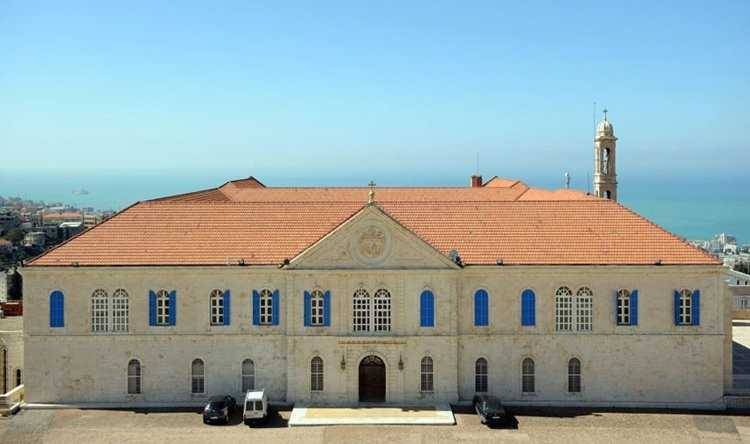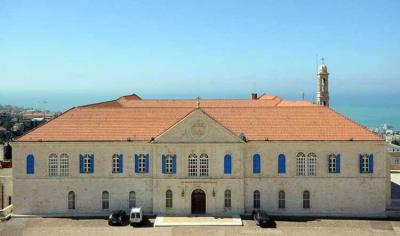The Identity and Sovereignty Meeting will present on Thursday at the Maronite Patriarchate in Bkirki a "new vision for Lebanon's future," which includes a constitutional mechanism for implementing the Taif Agreement and gradually moving away from the consequences of the sectarian system. This civil, non-secular document has garnered the support of Maronite Patriarch Bechara Al-Rahi and has welcomed various political forces, aiming to gradually pull Lebanon out of its political and economic crises.
The vision presented by the Identity and Sovereignty Meeting, an independent national Lebanese gathering, argues for Lebanon to be a neutral decentralized civil state. It will be discussed at Bkirki on Thursday with the participation of representatives from parties and political forces, a significant number of which have confirmed their attendance to discuss its clauses. The meeting coincides with the delivery of a copy of the vision from Dr. Mohammad Samak, chairman of the Wisdom Board in the "Meeting," to the Vatican.
The new vision is based on the spirit of the Taif Agreement, as explained by the meeting's president, former minister Youssef Salameh, who noted the recent increase in obstructionist power in the country since the Syrian withdrawal in 2005. The constitution does not impose deadlines on the president or the prime minister, thus prompting proposals aimed at abolishing political sectarianism, establishing a Senate, and adjusting electoral districts to create a level of representation that embodies the diversity of Lebanon.
Regarding the electoral districts, the vision proposes dividing them according to Lebanon's historical districts, totaling 25, plus the capital Beirut. This aims to achieve a political representation balance among the districts regardless of the voting bloc. It seeks an equality in the number of district representatives to form a legislative council of 60 deputies distributed among sects (28 Muslims, 28 Christians, and 4 Druze) within a policy aimed at protecting sectarian balance. Salameh stated that this aims to stimulate a sense of citizenship, enhance the influence of minorities, and encourage the majority towards a non-sectarian discourse, thus maintaining balance and laying the foundation for national thought, consistent with the principles of the Taif Agreement.
One of the most notable proposals in the document is to establish a specific timeframe for the president's invitation for binding parliamentary consultations to nominate a prime minister. It also proposes a deadline for forming the government and submitting the government formation to the Senate and the Parliament for approval, thereby compelling the president to sign it. The president will be elected by the people and must be a member of the Senate, with his nomination requiring the approval of 16 out of 60 Senate members.
Salameh believes that the political discourse must elevate to a national level, stating that if the amendments are made to Lebanese law, Lebanon could transition away from political sectarianism within two decades by abolishing the sectarian nature of the three presidencies (presidency of the republic, government, and parliament), allowing for rotation among them and liberating state institutions from the influence of large sects. He emphasizes that Patriarch Al-Rahi has adopted this document and considers it a salvation for Lebanon, noting that it has received approval from most parliamentary blocs, which see it as reflective of their ideas.
Despite nearly 34 years since the National Accord Document in Taif was ratified, the agreement has not been fully implemented, as decentralization has not been realized and religious sects still hold substantial influence, working to protect their positions. The former MP and head of international relations in the Identity and Sovereignty Meeting, Bassem Al-Shab, points out that everything needs development, emphasizing that neutrality is essential for Lebanon, which cannot remain in a state of continuous war. He questions whether the ongoing wars and the incomplete implementation of international resolutions are solely due to the non-application of the Taif Agreement, and asserts that they are not, while simultaneously working within the document to implement the Taif Agreement and close the gaps within it.
Al-Shab acknowledges that the demographic situation in Lebanon raises sensitivities, but it remains stable, considering that all major sects care about a unified Lebanon. He affirms that there is considerable convergence among the sects that can be built upon but requires new arrangements, highlighting that political parties have proven to be stronger than civil society and possess significant influence, which is why they have reached out to them. He describes the document as balanced.
He also addresses the relationship with the Arab world, warning that changing Lebanon's formula would alter relations with Arab nations. He asserts that Lebanon's formula is a primary reason for the Lebanese diaspora's success in Arab countries and worldwide, emphasizing the need to maintain a special relationship with GCC countries. From this viewpoint, he rejects the federalism being promoted, stating that it would eliminate Christians in the Arab world, similarly to how the establishment of Israel ended the Jewish presence in the Arab world.
The new proposal does not contradict calls for neutrality, as Lebanon has suffered from external interventions that previously led to a civil war. It also aligns with initiatives to build strong relationships with the Arab world, asserting that Lebanon is the younger brother of the Arabs. Member of the Political Bureau and head of Arab relations in the meeting, Amer Al-Bahli, underlines that to have an inclusive document, it must fundamentally recognize Lebanon as an Arab nation that interacts with the Arab world.
Al-Bahli confirms to "The Middle East" that the document is a gateway to significant development, adding that there is a local demand for everyone to freeze sectarian instincts to achieve a better country. He notes that Arab countries expect Lebanon to establish itself as a state and to engage as such, rather than as a sect, and for Lebanon to stop exporting problems to Arab brothers. He expresses hope that international equations provide an opportunity to correct relations.
The meeting has extended invitations to all parties and political forces to participate in this gathering in Bkirki on Thursday to discuss the document openly with the deputies. Al-Bahli affirms that, for them, there are no electoral calculations but national considerations, and additional sessions will be held to continue discussions, announcing that if the regional situation post-Gaza War is favorable for Lebanon, something will be ready soon.




